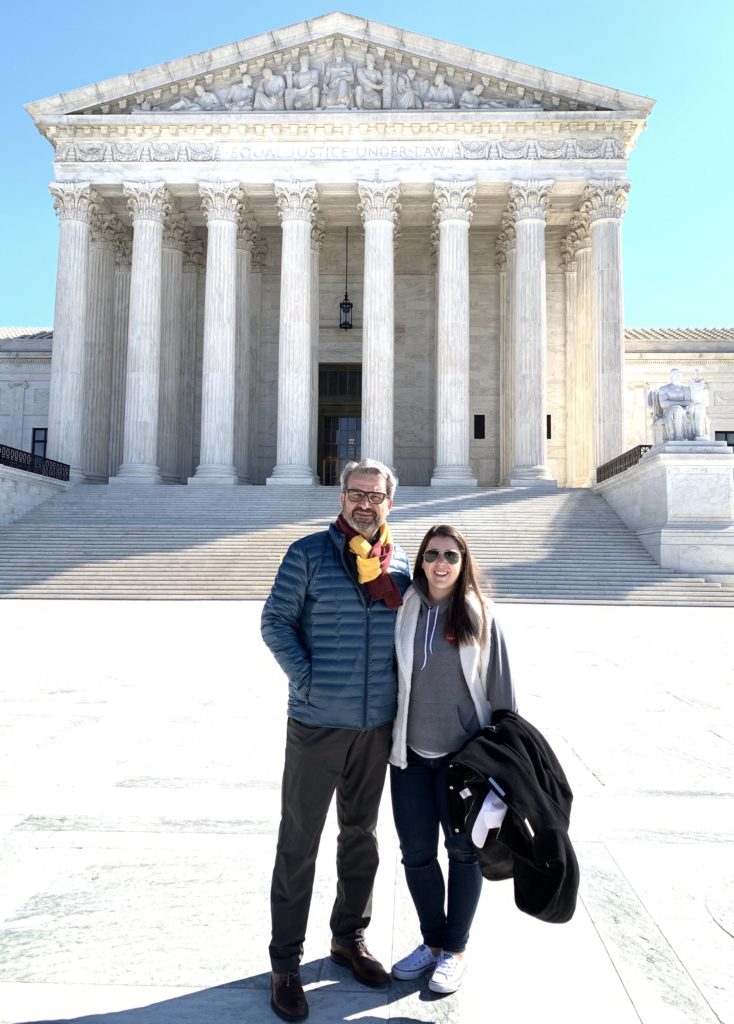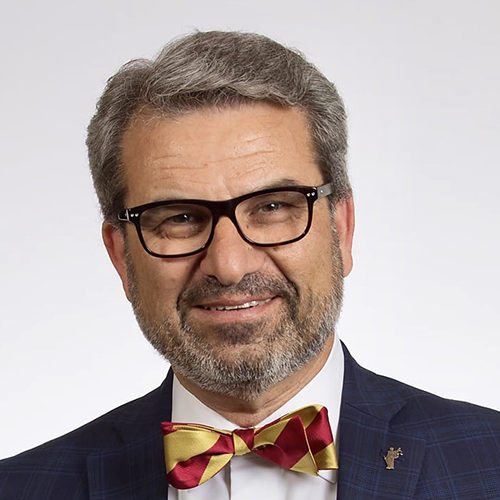January 6, 2021, was Epiphany on the Christian religious calendar. For Armenians around the globe, also known as Christmas. Unfortunately, however, it was also a day of utmost disappointment and outrage for this American Armenian lawyer, who values the rule of law, tolerance, freedom, and democracy. Someone uprooted from his ancestral land based on intolerance for the promise of this freedom under the rule of law. This troubling January 6 in history was when this nation’s leader demeaned his constitutional institution by conduct unbecoming.
Endangering life and property for any cause is not the answer in a free and lawful society. Differing political views are healthy for any imperfect society seeking a “perfect union.” However, the resolution or reconciliation of these views in our Republic occurs in our legislative chambers or courts. They do not on our cities’ streets or corporate tech board rooms. The “tranquility,” “general welfare,” and “securing the blessings of liberty” that our Founders sought cannot possibly be obtained by violence or arbitrary decision making by private groups.
Whether it is Portland or Washington DC, attacking a constitutionally created institution by force and violence is neither patriotic nor democratic. Experts have to sort out why and how constitutionally protected peaceful protests end up in violence against that same constitution that protects them. Tolerate or not to tolerate, that is indeed the question.
Political v Constitutional
With this backdrop, Americans must take a deep breath and separate political views from constitutional views. In the decentralized form of government, citizens must participate in governance. The citizens need to discuss and criticize government policy of any political persuasion without fear. This engagement is necessary for the governed to control their destiny. Free speech is not only an abstract value in our Republic but a critical element at the heart of our democracy. Therefore, tolerance of other constitutionally protected views is essential for our Republic if we want to keep it.

Constitutional Speech
As a young law student, I recall reading the iconic concurring opinion of the distinguished Supreme Court of the United States (SCOTUS) Jurist Louis Brandeis in the Whitney v. California case. In Whitney, Justice Brandeis famously wrote, “If there be time to expose through discussion the falsehood and fallacies, to avert the evil by the process of education, the remedy to be applied is more speech, not enforced silence.” These instructive words laid the groundwork for another SCOTUS landmark case of Brandenburg v. Ohio, which overruled Whitney on limited grounds. Brandenburg remains the constitutional test today for government justification to punish “inflammatory” speech “directed to inciting or producing imminent lawless action and is likely to incite or produce such action.” SCOTUS does not take this test lightly. Very few cases meet this test to silence a political speaker.
The Framers would most likely agree with this cautious approach to government regulation of speech. They were influenced by Greek and Roman democracies founded on debate and argumentation. The Framers were in awe of political philosophers who advocated decentralized freedom, like Locke, Montesquieu, Voltaire, and others. They feared “factions, which are animated by passion rather than reason, dedicated to self-interest rather than the public good.”
Modern Digital Speech
While the Framers envisioned personally delivered speeches in the physical public square, they never contemplated the mobs that can form within seconds on Twitter, Facebook, Instagram, Google, and other similar platforms today.
These tech mass communication platforms are now banning people and organizations based on their political views silencing in the process, those with whom they disagree. Perhaps they are following the political views of the majority or even the supermajority. Assuming arguendo, is that the test? Is silencing minority views considered progress?
None of these tech platforms are the government, and therefore, the first amendment does not apply to them. Yet they parade themselves as public fora and directly profit from the public. They also profess neutrality to benefit from a very public federal law known as Section 230 of the Communications Decency Act. The Act, with some exceptions, protects tech platforms from liability for the postings of independent users.
Some believe that exercising editorial judgment violates the Act’s precondition for neutrality. Others claim that neutrality never existed and that removing the protections from liability will kill the internet’s innovation. Still, others claim that these platforms are sources of social degradation. Therefore, as such, they are subject to more regulation. Whatever the belief, both political parties in recent years have questioned Section 230.
Tolerate or not?
Tolerate or not to tolerate is the question. Caution and respect for constitutional views will better serve these tech giants. They must find ways to slow down the effect of digital speech to give all of us time to sober up and listen carefully to our classmates, colleagues, and fellow citizens. Listening will build the tolerance necessary to honor the wisdom of our Founders and Justice Brandeis. To be a better society, we all need the “time to expose through discussion the falsehood and fallacies, to avert the evil by the process of education.” Because as Justice Brandeis concluded, “the remedy to be applied is more speech, not enforced silence.”

Frank V. Zerunyan is a Professor of the Practice of Governance at the University of Southern California (USC) Sol Price School of Public Policy (USC Price) and Director of Executive Education at USC Price Bedrosian Center on Governance. Professor Zerunyan oversees USC’s Reserve Officers’ Training Corps (ROTC) as the Director and University Liaison for the U.S. Air Force, Army, Naval Reserves ROTC, and Nautical Science Programs.
Professor Zerunyan’s principal areas of expertise include governance, public-private partnerships, civic and ethical leadership, land use, medical regulation, negotiation, and executive education. He lectures locally and globally to build capacity and foster leadership among public executives worldwide. He is the author of books, book chapters, and many short articles published nationally, internationally, and on USC Price’s “Faculty Perspectives.” Professor Zerunyan is often quoted in the media and is a USC resource for journalists as an expert in governance and leadership. He is also an expert on public administration at the United Nations Innovation Branch (formerly Capacity Building Branch).
For his influential advisory role in the Republic of Armenia, he was awarded LL.D. Doctor of Laws – Honoris Causa by the Public Administration Academy of the Republic of Armenia. Professor Zerunyan designs curricula and teaches at the American University in Armenia, Yerevan State University, and the Vazgen Sargsyan Military University in Armenia, with an honorary rank of colonel. He also teaches for the U.S. Navy at the U.S. Naval Service Training Command.
Professor Zerunyan serves on the editorial boards of the Public Administration Scientific Journal for the Republic of Armenia and the Ukrainian Law Review. He is on the board of councilors of Anahuac University Law School, Xalapa, Mexico (Consejo Consultivo de la Escuela de Derecho).
Professor Zerunyan earned his Doctor of Jurisprudence (Doctor of Laws) degree from Western State University College of Law and his Bachelor of Arts degree from California State University Long Beach. He also completed his advanced legal education in Corporate Taxation at the University of Southern California Law Center (USC Gould). He is a graduate of the California League of Cities’ Civic Leadership Institute.
Professor Zerunyan, trained and practiced as a lawyer, is a four-term Mayor and Councilmember in the City of Rolling Hills Estates, California. He serves on several city, county, and regional policy boards and committees. He was also a gubernatorial appointee under Governor Schwarzenegger, serving 38 million medical consumers on the Medical Board of California.

